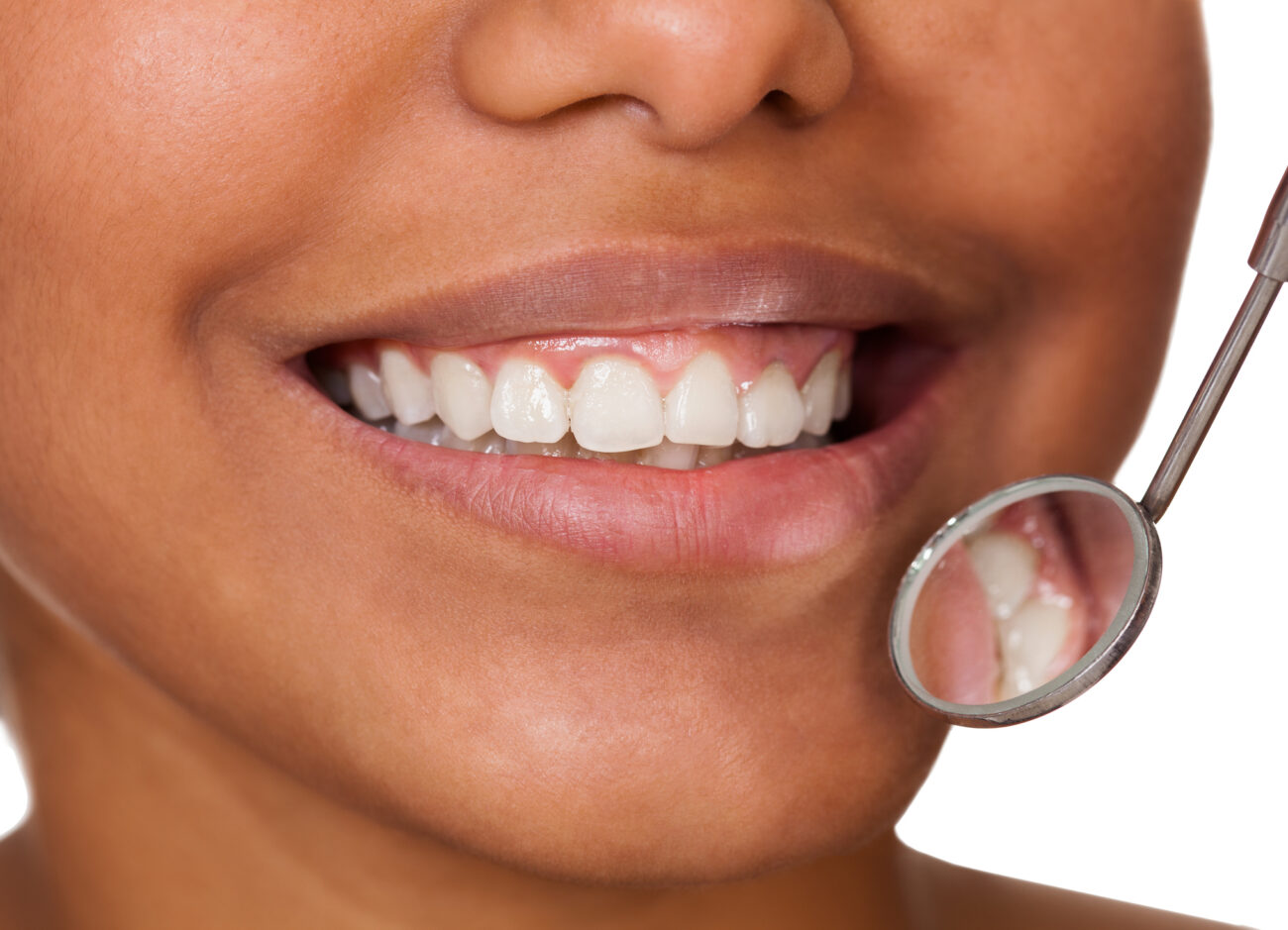At every regular dental hygiene appointment, Dr. Christopher Goelz or Dr. William Jennings will evaluate your gums for periodontal disease. This screening is vital to oral health as gum disease can lead to tooth loss, bone loss in the jaw, and many other complications. Longview Family Dental provides comprehensive periodontal disease treatment in Longview, TX no matter how advanced the disease is.

What is Periodontal Disease?
Periodontal disease, called gum disease, is an oral health condition that affects the gum tissues and the bone surrounding the teeth. It occurs as a result of improper oral hygiene practices such as inadequate teeth brushing, skipping on the floss, and failing to visit the dentist.
What Causes Gum Disease?
The main culprit in the development of gum disease is plaque. Plaque is a sticky, colorless film of bacteria and sugars that constantly forms on our teeth. It’s also the cause of tooth decay. The bacteria in plaque produce acids that attack tooth enamel and gum tissues.
The development of periodontal disease begins when plaque is not removed from teeth. Over time, this plaque can harden into a substance called tartar. Plaque and tartar will attack the gums leading to bleeding and swollen gums. Eventually, this bacterial invasion will cause damage to the bone surrounding the teeth as well.
While poor oral hygiene practices play a significant role in the development of gum disease, other conditions can contribute to it. Genetics, diabetes, and smoking can increase your risk of periodontal disease. Also, hormone changes, such as being pregnant can play a significant role in the development of the disease.
Stages of Periodontal Disease
Gum disease is a progressive disease. Once you are diagnosed, it is crucial to get treatment to prevent the progression. The stages of periodontal disease include:
Gingivitis
The first stage of periodontal disease, gingivitis, often gets overlooked. Patients may not be aware of their developing symptoms or simply ignore them because they are not severe. The signs of gingivitis include bleeding gums, red gums, and swollen gums. Your gums may feel irritated or inflamed in general. Bleeding typically occurs when brushing or flossing. Gingivitis is very treatable and Dr. Goelz or Dr. Jennings will catch it if you attend your regular dental appointments.
Periodontitis
If gingivitis is not treated, it will progress into periodontitis. Periodontitis is an advanced stage of periodontal disease. Most patients know when they reach this stage because the symptoms are more severe and hard to ignore. Signs of periodontitis include deep pockets along the gum line, severe inflamed gums, and the underlying bone starting to become affected. You will also experience bad breath, receding gums, loose teeth, new spaces developing between your teeth, and a change in how your teeth fit together when you bite.
Advanced Periodontitis
Advanced periodontitis is the final and most severe stage of periodontal disease. It is a serious disease and results in irreversible damage to your oral health. Most significantly, there is destruction of the tissues and bone that support the teeth. This stage is marked by deep gum pockets, which leads to severe gum recession. Substantial loss of bone around the teeth and tooth looseness or loss is likely.
How Do I Know If I Have Gum Disease?
A dentist will conduct an oral exam to determine if you have gum disease. They will take full mouth X-rays and perform a periodontal probing. During the probing, they will use a dental instrument to measure the depth of the gum tissue around each tooth. Normal readings range between 1-3mm. Readings exceeding this range indicate the presence of gum disease, which will require treatment. It’s important to note that gum disease is treatable if caught in its early stages.
Periodontal Disease Treatment in Longview, TX
Professional Dental Cleanings: If you have gingivitis, a thorough teeth cleaning and a commitment to regular dental care will get your oral health back on track. Our dental hygienists perform teeth cleanings during regular dental checkups. This vital treatment will remove plaque and tartar that builds up on the teeth to prevent gum disease and its progression.
Scaling and Root Planing: For more advanced cases of gum disease, you may need a deep cleaning treatment called scaling and root planing. It is essentially a deep cleaning that also removes tartar from below the gum line. Your dentist will first remove tartar buildup from the gum pockets. Then they will smooth out the toot roots to encourage gum reattachment and prevent further bacterial growth. This treatment helps prevent gum recession and tooth loss.
Laser Dentistry: Longview Family Dental also offers laser dentistry for advanced periodontal disease. Gum disease can leave behind diseased and damaged gum tissue. Your dentist can use a dental laser to remove this tissue without surgery. Removing the diseased tissue will prevent it from progressing further. To learn more about the benefits of using dental lasers to treat gum disease, see Laser Dentistry.
Schedule an Appointment for Periodontal Disease Treatment in Longview, TX
If you are seeking expert dental care for gum disease, schedule an appointment with Dr. Goelz or Dr. Jennings today by calling 903-662-7811 or by requesting an appointment online. They can provide you with the periodontal disease treatment in Longview, TX that you need to regain your oral health.
